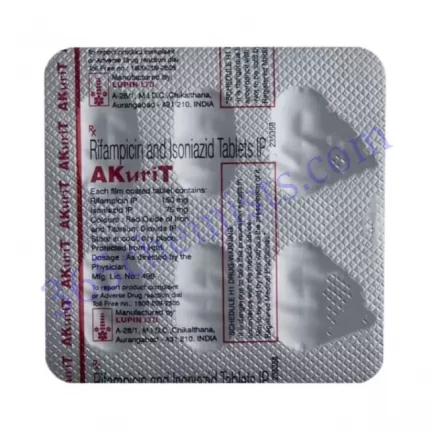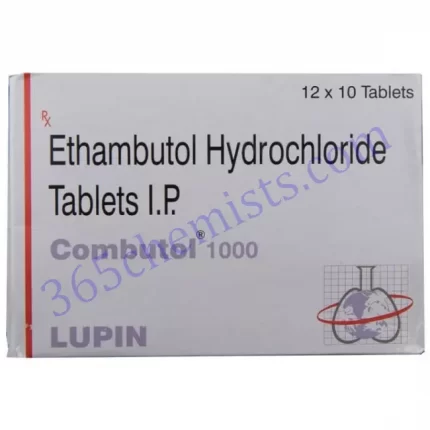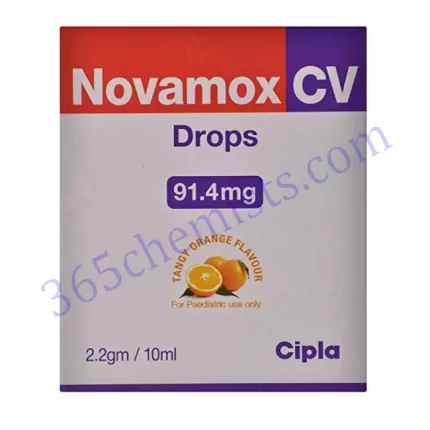Description
Macox Plus-150 Tablet is a combination medicine which may be used for the treatment of tuberculosis. It is important to continue treatment with this medicine even if you feel better; do not stop the use of this medicine without consulting your doctor.
Side effects
Major & minor side effects for Macox Plus-150 Tablet
Abdominal pain
Dizziness
Yellow colored eyes or skin
Skin rash
Dark urine
Loss of appetite
Nausea or vomiting
Unusual tiredness or weakness
Tingling or numbness of the hands and feet
Convulsions (seizures)
Depression
Joint pain
Unusual bleeding or bruising
Uses of Macox Plus-150 Tablet
What is it prescribed for?
Tuberculosis
This medicine may be used in the treatment of active tuberculosis, a type of lung infection caused by Mycobacterium tuberculosis.
Related Product
Macox Plus 150mg/100mg Tablet
Macox Plus 450mg Tablet
Macox Plus 600mg Tablet
Macox Plus Kid Tablet
Macox-ZH Tablet
Macox-ZH Kid Tablet
When not to use?
Allergy
This medicine is not recommended for use in patients with a known allergy to isoniazid, rifampicin, or any other inactive ingredients present in the formulation.
Severe Hepatic impairment
This medicine is not recommended for use in patients suffering from a severe hepatic impairment or an acute liver disease due to the increased risk of worsening of the patient’s condition.
Antiviral medications
This medicine is not recommended for use in patients receiving antiviral therapy since it may reduce the effects of antiviral medications and may lead to the development of viral resistance.
Warnings
Warnings for special population
Pregnancy
This medicine is not recommended for use in pregnant women unless absolutely necessary. All the risks and benefits should be discussed with the doctor before taking this medicine.
Breast-feeding
This medicine is not recommended for use in breastfeeding women unless absolutely necessary. All the risks and benefits should be discussed with the doctor before taking this medicine. Your doctor may advise you to discontinue breastfeeding or to discontinue the drug based on your clinical condition.
General warnings
Liver Disease
This medicine should be used with extreme caution in patients with a known history of liver diseases due to the increased risk of worsening of the patient’s condition. Close monitoring of liver function tests, appropriate dose adjustments, or replacement with a suitable alternative may be required based on the clinical condition.
Drug-resistance
Usage of this medicine without sufficient proof or suspicion of a bacterial infection should be avoided. Irrational dosing might fail in providing the benefits and even cause toxicity. It may also increase the risk of development of bacteria that are drug-resistant.
Liver enzymes
Use of this medicine may elevate liver enzyme levels in some patients. Close monitoring of liver enzyme levels, appropriate dose adjustments, or replacement with a suitable alternative may be necessary in some cases based on the clinical condition.
Skin Reactions
Use of this medicine may cause severe skin reactions including Stevens-Johnson syndrome (SJS) and Toxic Epidermal Necrolysis (TEN) in some patients. Report any skin rashes or mucosal lesions to the doctor immediately. Appropriate corrective measures, dose adjustments, or replacement with a suitable alternative may be required based on the clinical condition.
Kidney Disease
This medicine should be used with caution in patients with kidney diseases due to the increased risk of severe adverse effects. Close monitoring of kidney function tests, appropriate dose adjustments, or replacement with a suitable alternative may be required based on the clinical condition.
Driving or Operating machinery
Use of this medicine may cause drowsiness or dizziness in some patients. It is advised that you do not perform any activities such as driving a vehicle or operating machinery if you experience any of these symptoms during treatment with this medicine.
Dosage
Missed Dose
Take the missed dose as soon as you remember. If it is almost time for your next dose, skip the missed dose. Do not double your dose to make up for the missed one.
Overdose
Seek emergency medical treatment or contact the doctor in case of an overdose.
Interactions
All drugs interact differently for person to person. You should check all the possible interactions with your doctor before starting any medicine.
Interaction with Alcohol
Description
Interaction with alcohol is unknown. It is advisable to consult your doctor before consumption.
Instructions
Interaction with alcohol is unknown. It is advisable to consult your doctor before consumption.
Interaction with Medicine
Azole antifungal agents
Protease inhibiors
Warfarin
Amodiaquine
Paracetamol
Atorvastatin
Disease interactions
Gastrointestinal Diseases
This medicine should be used with caution in patients with a history of gastrointestinal diseases, particularly colitis due to the increased risk of worsening of the patient’s condition. Appropriate dose adjustments or replacement with a suitable alternative may be required based on the clinical condition.
Porphyria
This medicine should be used with caution in patients with a history of porphyria due to the increased risk of worsening of the patient’s condition. Replacement with a suitable alternative may be required based on the clinical condition.
Peripheral Neuropathy
This medicine should be used with caution in patients with a known history of peripheral neuropathy due to the increased risk of worsening of the patient’s condition. Appropriate corrective measures including vitamin B6 supplementation, dose adjustments, or replacement with a suitable alternative may be required in some cases based on the clinical condition.
Diabetes
This medicine should be used with caution in patients with a history of diabetes since it may alter the blood glucose levels. Close monitoring of blood glucose levels, appropriate patient education, or replacement with a suitable alternative may be required based on the clinical condition of the patient.
Kidney Disease
This medicine should be used with caution in patients with kidney diseases due to the increased risk of severe adverse effects. Close monitoring of kidney function, appropriate dose adjustments, or replacement with a suitable alternative may be required in some cases based on the clinical condition.
Liver Disease
This medicine is not recommended for use in patients with acute liver disease or a known history of liver injury due to the use of this medicine. It should be used with caution in patients with a history of liver diseases due to the increased risk of serious liver injuries which may be fatal. Close monitoring of liver function tests is recommended for such patients. Appropriate dose adjustments or replacement with a suitable alternative may be necessary based on the clinical condition.
Food interactions
This medicine should be taken on an empty stomach, at least 1 hour before or 2 hours after a meal since food decreases the absorption of this medicine.
Lab interactions
Information not available.
This is not an exhaustive list of possible drug interactions. You should consult your doctor about all the possible interactions of the drugs you’re taking.
General Instructions
Take this medicine on an empty stomach, either 30 minutes before or 2 hours after a meal. The absorption of this medicine may be reduced if it is taken along with food. Do not consume in larger or smaller amounts than advised. Consult the doctor if you experience any undesirable side effects. Ensure that the treatment course is completed. Do not stop the use of this medicine without consulting your doctor.ac













Reviews
There are no reviews yet.